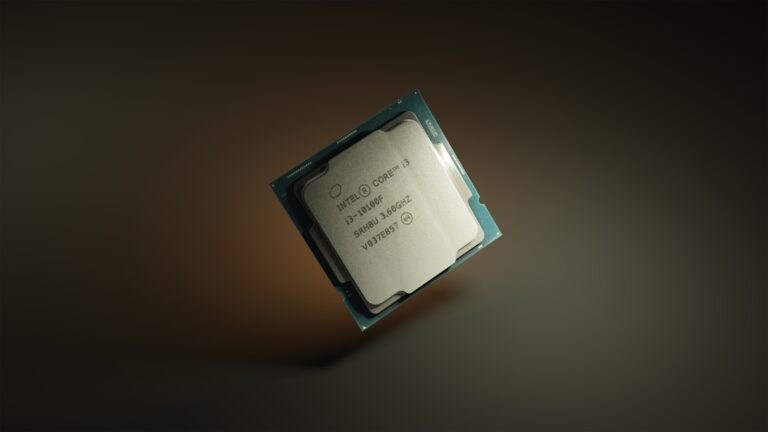The pace of technological progress continues to accelerate, bringing with it a range of innovations that are set to change our daily lives. As we look ahead to the devices and systems on the horizon, it’s important to recognize the significant impact these advancements will have on society. From how we connect with one another to how businesses operate, the next wave of technology promises to bring substantial changes.
For instance, consider technologies like sustainable aviation fuels, which aim to reduce environmental impacts, or advancements in molecular biology that could transform healthcare. These innovations represent just a small portion of the emerging technologies that have the potential to revolutionize various aspects of our world. As these advancements become woven into the fabric of our daily routines, they present new opportunities and challenges that we must navigate carefully.
10 Upcoming Inventions That Will Change the Future

1. Artificial Intelligence Agents
AI is moving beyond chatbots into autonomous agents that can perform complex tasks—like negotiating contracts, running businesses, or managing supply chains—with minimal human input. These will revolutionize productivity across industries.
(source: World Economic Forum)
2. Quantum Computing Applications
Quantum computers are transitioning from theory to real-world problem solving. They will help design new drugs, optimize logistics, and create stronger cybersecurity systems far beyond classical computing capabilities.
3. Next-Generation Gene Editing (CRISPR 3.0)
Improved precision in gene editing will allow scientists to cure genetic diseases, enhance crop resilience, and even slow aspects of aging. This could reshape medicine and agriculture.
4. Biodegradable Electronics
Electronics that dissolve safely after use are emerging. These will reduce e-waste pollution and enable temporary medical implants that disappear after healing.
5. Fusion Energy
After decades of research, fusion is approaching commercial viability. Fusion plants could provide limitless clean energy, solving one of humanity’s biggest challenges: sustainable power.
6. Brain-Computer Interfaces (BCIs)
Neural implants and non-invasive BCIs will allow people to control devices with their thoughts, restore lost mobility for paralyzed patients, and potentially enhance human cognition.
7. Spatial Computing & Mixed Reality
The evolution of AR/VR into spatial computing will merge the digital and physical worlds. Imagine working in a 3D holographic office or learning with immersive simulations.
8. Lab-Grown Meat & Precision Fermentation
Advances in cellular agriculture will make cultivated meat and dairy affordable and mainstream. This could drastically reduce the environmental footprint of food production.
9. Self-Healing Materials
New materials can repair themselves when damaged—useful for infrastructure, electronics, and even spacecraft. This will extend product lifespans and reduce maintenance costs.
10. Personalized Medicine with Digital Twins
Digital twins of the human body—virtual models that simulate an individual’s biology—will allow doctors to test treatments on your digital self before applying them in real life.
✨ The Big Picture:
These inventions are not just futuristic concepts—they’re actively being developed and tested today. Together, they could redefine how we live, work, and interact with the planet over the next decade.
Technology of the Future
Here’s a look at some of the upcoming inventions that have the potential to reshape our world:
Brain-Computer Interfaces (BCIs)
Brain-computer interfaces create a direct link between the human brain and a computer. While still in their early phases, BCIs have a wide range of potential applications. People with paralysis could regain control of their limbs; those with neurological disorders could find new ways to communicate. BCIs could eventually allow us effortless control of smart devices or even enhance our cognitive abilities.
Personalized Medicine
Advances in genetic sequencing and data analysis are making medicine tailored to the individual a reality. Personalized medicine allows for more targeted treatments, reducing side effects and potentially curing diseases that were once thought untreatable. Imagine a world where doctors can predict your susceptibility for certain conditions even before you develop symptoms.
Fusion Energy
Fusion is the power source of the stars, and scientists believe harnessing it could provide limitless, clean energy. Unlike nuclear fission, fusion produces no radioactive waste. While fusion reactors have remained elusive, recent breakthroughs suggest commercial-level fusion energy could be closer than we think.
Self-Repairing Materials
Imagine everything from buildings to phones that can fix themselves when damaged. Self-repairing materials contain capsules that release a healing agent when damage occurs. This promises to create much longer lasting structures and products, reducing waste and minimizing our environmental footprint.
Quantum Computing
Quantum computers leverage the strange properties of quantum mechanics to perform calculations traditional computers can’t. They have the potential to revolutionize drug development, financial modeling, materials design, and more. Breaking previously unbreakable encryption is also a major concern and opportunity within this domain.
Artificial General Intelligence (AGI)
AGI refers to machines as smart as humans, capable of learning, reasoning, and adapting across a wide range of tasks. AGI could make possible self-driving cars that actually think like humans, AI scientists that help humans make groundbreaking discoveries, or even fully autonomous robot companions. However, AGI also raises ethical concerns about the role of such powerful intelligence in our world.
Lab-Grown Meat
Lab-grown, or cultured, meat is made from animal cells in a laboratory. It promises to end the need for large-scale animal agriculture, drastically reducing resource use and greenhouse gas emissions. As technologies evolve, lab-grown meat could become a viable and ethical alternative to traditional meat production.
3D Printed Organs
3D printing is already used for prosthetics and medical models, but it could one day print entire functional organs. This would revolutionize transplantation, eliminating the need for donors and drastically reducing wait times.
Hyperloop Transportation
The hyperloop concept envisions pods levitating through low-pressure tubes, traveling at speeds faster than airplanes. If it proves feasible, hyperloop could transform transportation, allowing for faster, more energy-efficient travel over long distances.
Space Tourism
Once out of reach for all but the elite, space tourism appears on the verge of becoming reality. Companies like SpaceX and Blue Origin are pushing the boundaries of commercial spaceflight. While still expensive, it could lead to entirely new industries built around space travel and even off-world settlements.
| Invention | Potential Impact | Timeline |
|---|---|---|
| BCIs | Aid in paralysis, new communication methods, boosted cognition | 5-15 years |
| Personalized Medicine | Targeted treatments, potential cures, preventative diagnoses | 10-20 years |
| Fusion Energy | Limitless, clean energy | 15-30 years |
| Self-Repairing Materials | Long-lasting, low-waste products and structures | 10-20 years |
| Quantum Computing | Revolutionize multiple industries, break encryption | 5-10 years |
| AGI | Unprecedented automation, ethical concerns | 10-20+ years |
| Lab-Grown Meat | Reduce resource use, environmental impact | 5-10 years |
| 3D Printed Organs | Solve transplant shortages | 15-20 years |
| Hyperloop | High-speed, energy-efficient travel | 10-15 years |
| Space Tourism | New industries, potentially off-world settlements | 5-10 years |
Key Takeaways
- Technological innovations are poised to reshape multiple dimensions of everyday life.
- Breakthroughs in science and technology have far-reaching implications for society.
- The advancements in technology will foster new ways of doing business and connecting people.
Scientific Breakthroughs and Their Impact on Society
Scientific advances shape how we live and work. They create new solutions and challenge old ways.
AI and Machine Learning Advances
Progress in AI and machine learning shapes data handling and decision-making. Generative AI is one key area. It designs new patterns from existing data. Machine learning improves with more data, helping in areas from business to healthcare. Both are part of the emerging technologies that push society forward.
Climate Change and Environmental Solutions
Scientists direct much effort toward solutions for climate change. This includes reducing carbon emissions and creating renewable energy sources. For example, sustainable aviation fuel cuts down on emissions from flights. The development of such technologies slows down global warming. It also opens the door for a cleaner environment.
Healthcare Innovations and New Drug Development
In healthcare, innovation makes big moves. Researchers develop new drugs with fewer side effects. They also bring AI into healthcare. This helps in understanding cells and disease patterns. Patients get better treatment options. Efficient and targeted drug development is crucial for advancing health.
Technological Advancements in Business and Connectivity
The intersection of technology and business has paved the way for innovations that transform how we connect and transact. Advancements in connectivity facilitate new forms of commerce, improve transportation, and bolster security measures.
The Evolution of Commerce and E-commerce
E-commerce has risen dramatically, reshaping the traditional shopping experience. Online platforms use data to understand customer habits better and anticipate needs. Technology like blockchain is making transactions safer and more transparent. 5G technology is speeding up internet services, making online shopping faster than ever.
Emerging Technologies in Transportation
Autonomous vehicles and drones are at the forefront of transforming transport systems. They promise to make moving goods quicker and safer. Companies are also exploring sustainable aviation fuel to reduce the carbon footprint. Satellite imagery and remote sensing are being used to manage fleets and navigate through busy cities with greater efficiency.
Advancements in Cybersecurity and Data Privacy
With business moving online, protecting sensitive information has become crucial. Companies invest in cybersecurity measures to shield against data breaches. Technologies such as encrypted transactions and secure cloud storage ensure customer data is kept safe. Legislation is evolving to protect online shoppers and online businesses as they handle personal data.
The Future of Remote Work and Virtual Environments
The shift to remote work has sparked the creation of virtual environments that enable team collaboration across distances. Tools like augmented reality are making remote training more interactive. Connectivity advances like 5G are making these virtual meetings smoother and more reliable. The rise of the metaverse offers a new realm where digital and physical realities merge, potentially shaping the future workplace.
Frequently Asked Questions
This section aims to address common inquiries regarding imminent technological innovations poised to shape our future.
What are some potential breakthrough technologies anticipated to emerge soon?
By 2030, we anticipate advancements in self-healing materials and quantum computing. These technologies are expected to enhance the durability of objects and significantly boost computing power.
Which inventions are likely to have a significant impact on our daily lives in the coming decades?
Smart wearables and AI are projected to integrate more deeply into our daily routines, revolutionizing health monitoring and personalized services.
What groundbreaking innovations are expected to redefine various industries by 2050?
By 2050, industries could be transformed by biotechnology, like the creation of synthetic organisms, and further advancements in AI, which may automate complex tasks.
What are the most important technological advances currently in development?
Current significant developments include renewable energy technologies, gene editing tools, and the progression of AI, all striving to address health, ecological, and social challenges.
How could future inventions significantly alter the way we interact with our environment?
Inventions such as sustainable aviation fuels and wearable plant sensors aim to make our interaction with the environment more harmonious by reducing our carbon footprint and monitoring plant health.
What new technologies are researchers focusing on that could solve critical global issues?
Researchers focus on clean energy solutions, advanced water purification methods, and climate change mitigation technologies that could address environmental and sustainability concerns on a global scale.







